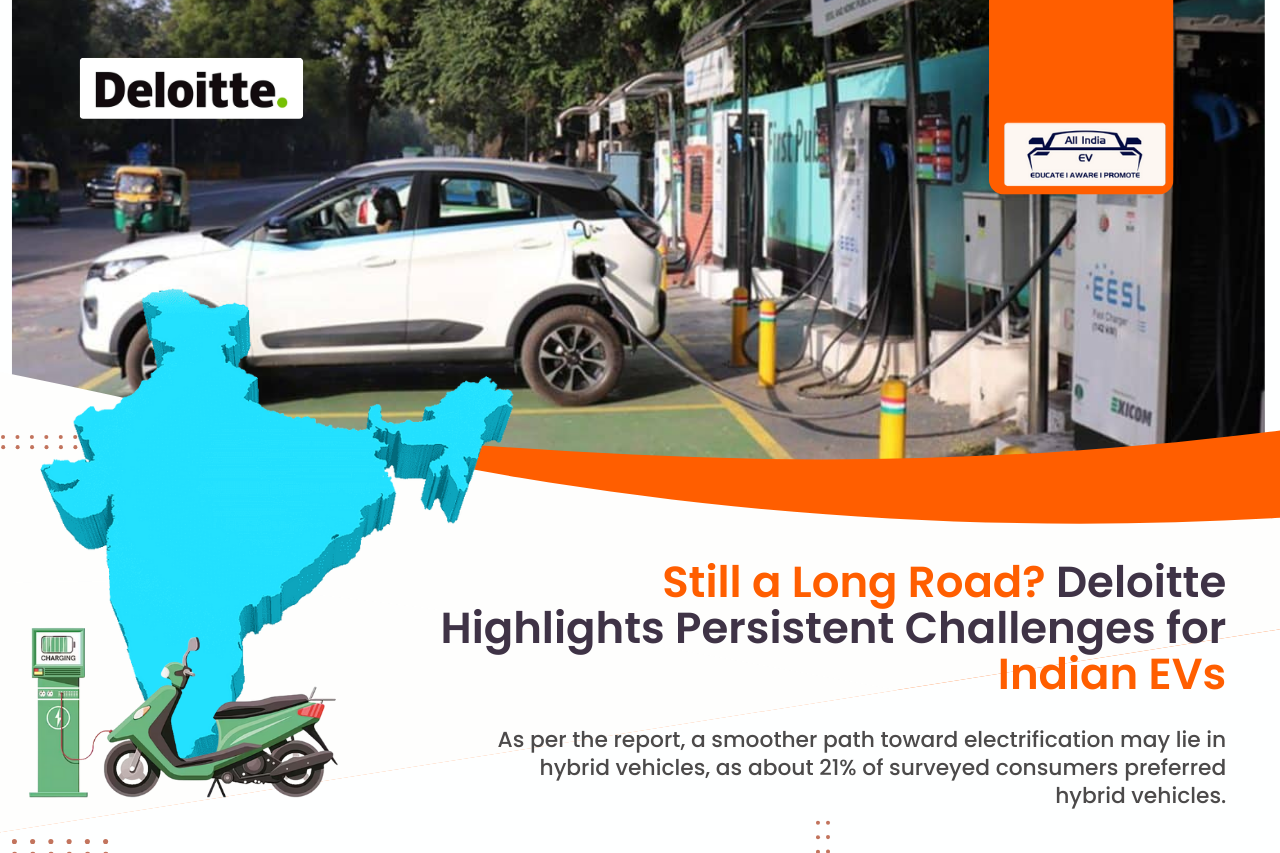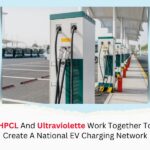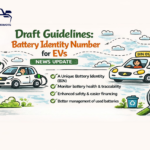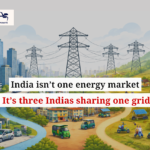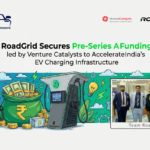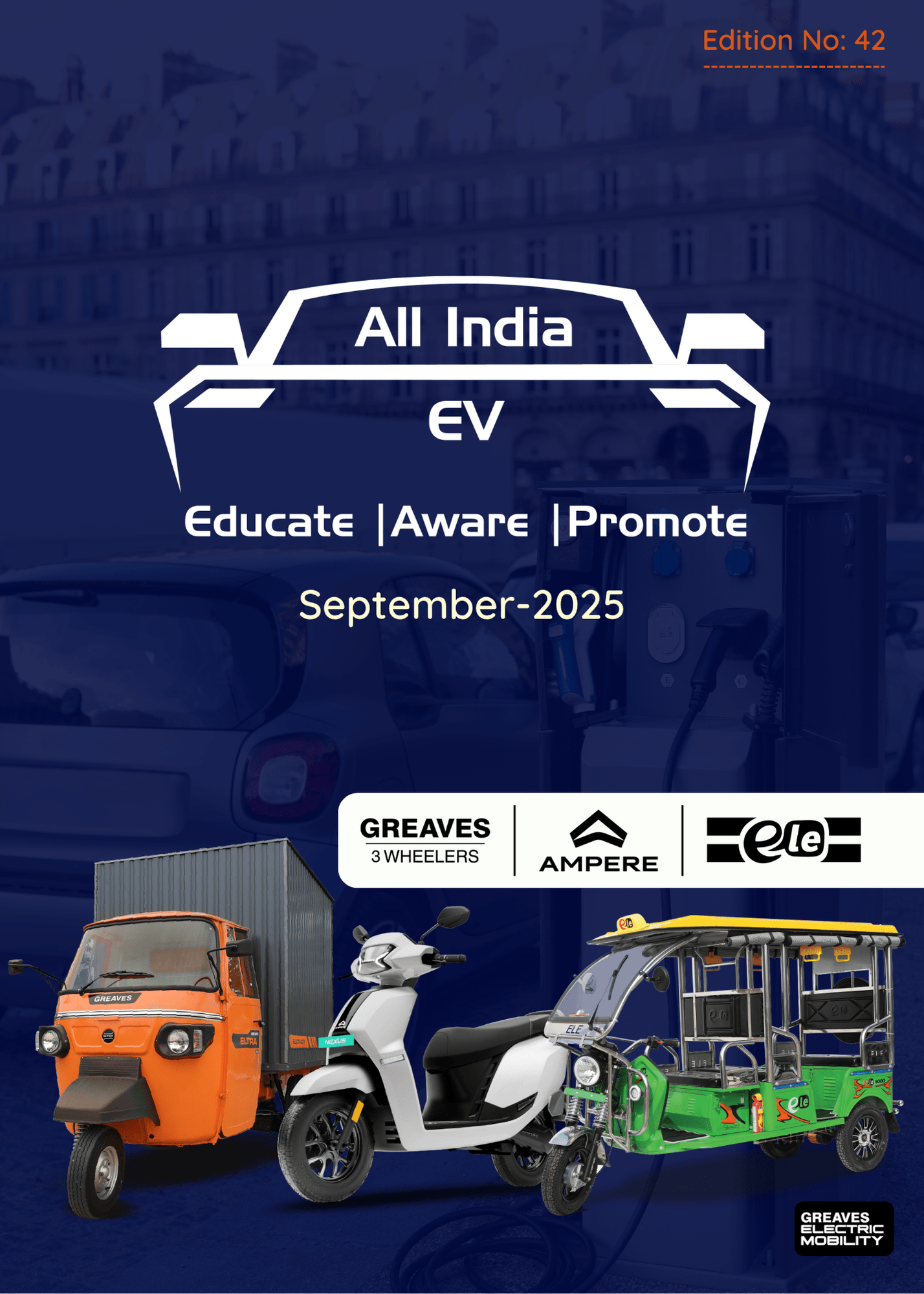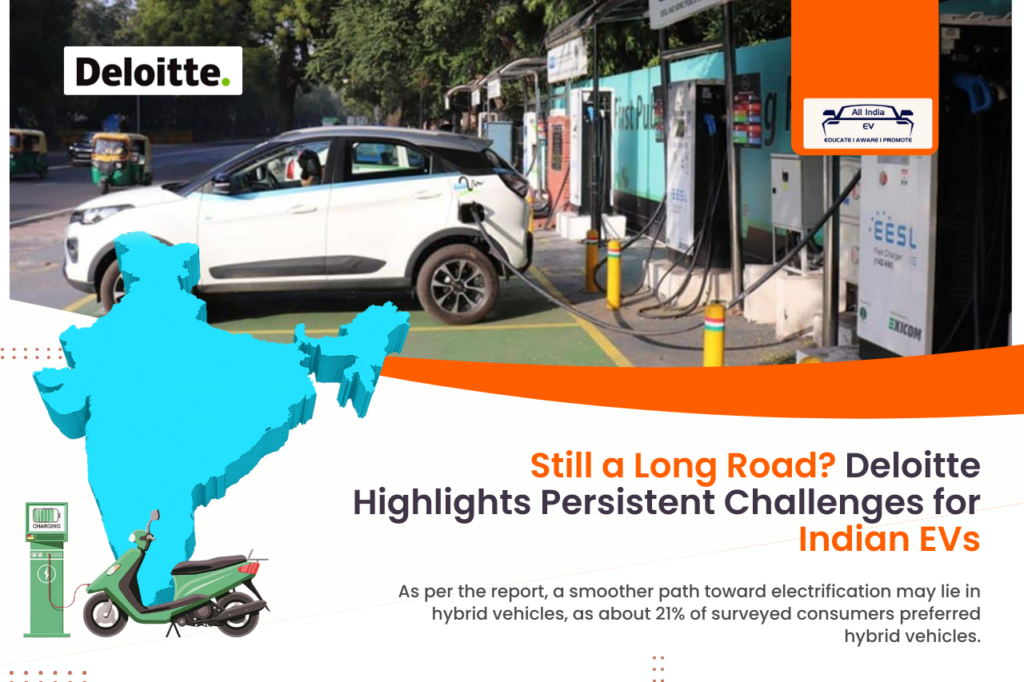
Deloitte report reveals major hurdles in India’s EV journey, urging focus on charging, policy, and consumer adoption.
India’s journey toward sustainable mobility continues to face critical challenges, as highlighted in Deloitte’s latest 2025 Global Automotive Consumer Study — India Report. The report underscores persistent hurdles in EV adoption, even as the country aims to meet its 2030 target of 30% electric vehicle penetration in the passenger vehicle segment.
According to the study, a majority of Indian consumers still favour internal combustion engine (ICE) vehicles, with 54% preferring ICE over electric or hybrid alternatives. This trend, coupled with concerns over affordability, limited charging infrastructure, and battery replacement costs, continues to hold back widespread EV adoption.
From India EV’s Perspective:
While we acknowledge the significant strides made by the government—through subsidies, FAME incentives, and infrastructure investment—there is a growing need for deeper policy support, industry collaboration, and public-private partnerships to bridge the trust and accessibility gap among consumers.
“I think, for two-wheelers, it is possible; for three-wheelers, we will obviously hit it, but for four-wheelers, it is going to be tough,” said Rajat Mahajan, Partner & Automotive Sector Leader, Deloitte India, during the media roundtable. “At just 3% in 2025, achieving 30% in five years is a 10X leap, which is difficult.”
Barriers to Adoption Remain Strong
As per Deloitte’s findings:
- Over one-third of buyers cite high upfront vehicle cost and battery replacement as major deterrents.
- Charging time, lack of public infrastructure, and range anxiety remain top concerns.
- Only 8% of the Indian market currently comprises Battery Electric Vehicles (BEVs).
Interestingly, hybrid vehicles (HEVs and PHEVs) are emerging as a viable transition option, collectively accounting for 33% consumer interest. However, the sector remains underrepresented due to India’s current tax structure—EVs are taxed at just 5%, while hybrids attract a steep 48% GST.
Global Trends Reflect a Shift
The global EV landscape is also shifting. While BEV sales have declined in major markets like the US and Japan, hybrid vehicle adoption has accelerated, suggesting that hybrids may act as a critical bridge between ICE and full electrification. As India EV has long advocated, consumer education and diversified model offerings, including hybrids, could be key to India’s EV transition.
“Maybe hybrids are going to play that role,” added Atul Jairaj, Partner – Automotive Sector, Deloitte India. “The future may not necessarily be a complete BEV future as fast as we want it to be.”
Consumer Sentiment Still Optimistic
Despite the challenges, there are green shoots of optimism. The report highlights that 75% of Indian consumers plan to spend less than ₹25 lakh on their next vehicle. Encouragingly, many remain open to paying a premium for electric alternatives—an opportunity the industry must seize with value-driven offerings.
India EV’s Outlook
The report reinforces what we’ve been observing across the ecosystem: achieving our national EV goals will require not just policies, but scalable action, localized solutions, and an inclusive product mix—from affordable two-wheelers to urban hybrids and accessible four-wheelers.
As we move forward, India EV remains committed to supporting India’s clean mobility vision, facilitating stakeholder collaboration, and driving awareness that helps accelerate the EV movement across the country.


